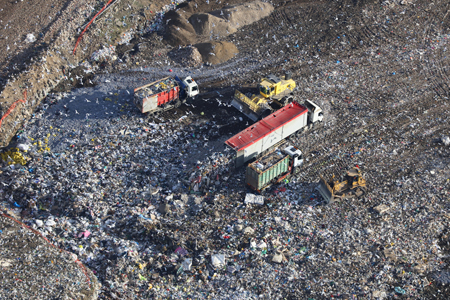A report published by the National Audit Office (NAO) today (12 February) examines how HM Treasury and HMRC manage four environmental taxes. It found HMRC had ‘formally’ evaluated the impact of the Landfill Tax but had not carried out any further evaluations of the impact.

The watchdog said HMRC only had a “partial understanding” of the gap between tax due and collected for three of the four environmental taxes.
Gareth Davies, head of the NAO, said: “Taxes are one of the tools available to government in pursuing its ambitious environmental goals. While there is some evidence of the positive impact that taxes can have on the environment, too little is known about their effect.
“HMRC and HM Treasury should work closely with other departments to ensure that existing and future tax measures are compatible with the wider environmental strategies being developed across government. HM Treasury’s review of how the transition to net zero will be funded is an important first step in this process.”
The report concluded there was some evidence of the positive impact that taxes could have on the environment, but too little is known about their effect. The exchequer departments tend to focus more on the revenue the taxes raise rather than the environmental impact they achieve, the NAO says.
Landfill
Between 1998 and 2014 HM Treasury increased the standard rate of Landfill Tax by 700% in ‘real terms’, the NAO says, contributing to a 65% fall in total waste to landfill during the period.
“While there is some evidence of the positive impact that taxes can have on the environment, too little is known about their effect”
However, HMRC estimates that the misclassification of waste at authorised landfill sites and waste disposed at unauthorised sites reduced Landfill Tax revenue by around £275 million (28% of tax due) in 2018-19. This figure does not include any revenue lost from illegal exports of waste and fly-tipping.
HMRC has sought to reduce tax lost by increasing its compliance work and extending the scope of the tax to unauthorised sites, the report notes.
Taxes
The exchequer departments administer four taxes with explicit environmental objectives: the Climate Change Levy; Carbon Price Support; Landfill Tax; and the Aggregates Levy. These taxes raised £3.1 billion in 2019. The government plans to introduce a fifth – the Plastic Packaging Tax – from April 2022 (see letsrecycle.com story).
In November 2019 HM Treasury began a review, which will conclude in 2021, into how the transition to net zero should be funded. The final report will look in more detail at how HM Treasury could incorporate climate considerations into spending reviews and fiscal events, and how to embed the principles of the review into policy making across government. HM Treasury and HMRC told the NAO the report will also look at the environmental impact of other tax measures which do not necessarily have the environment as a core objective.










Subscribe for free